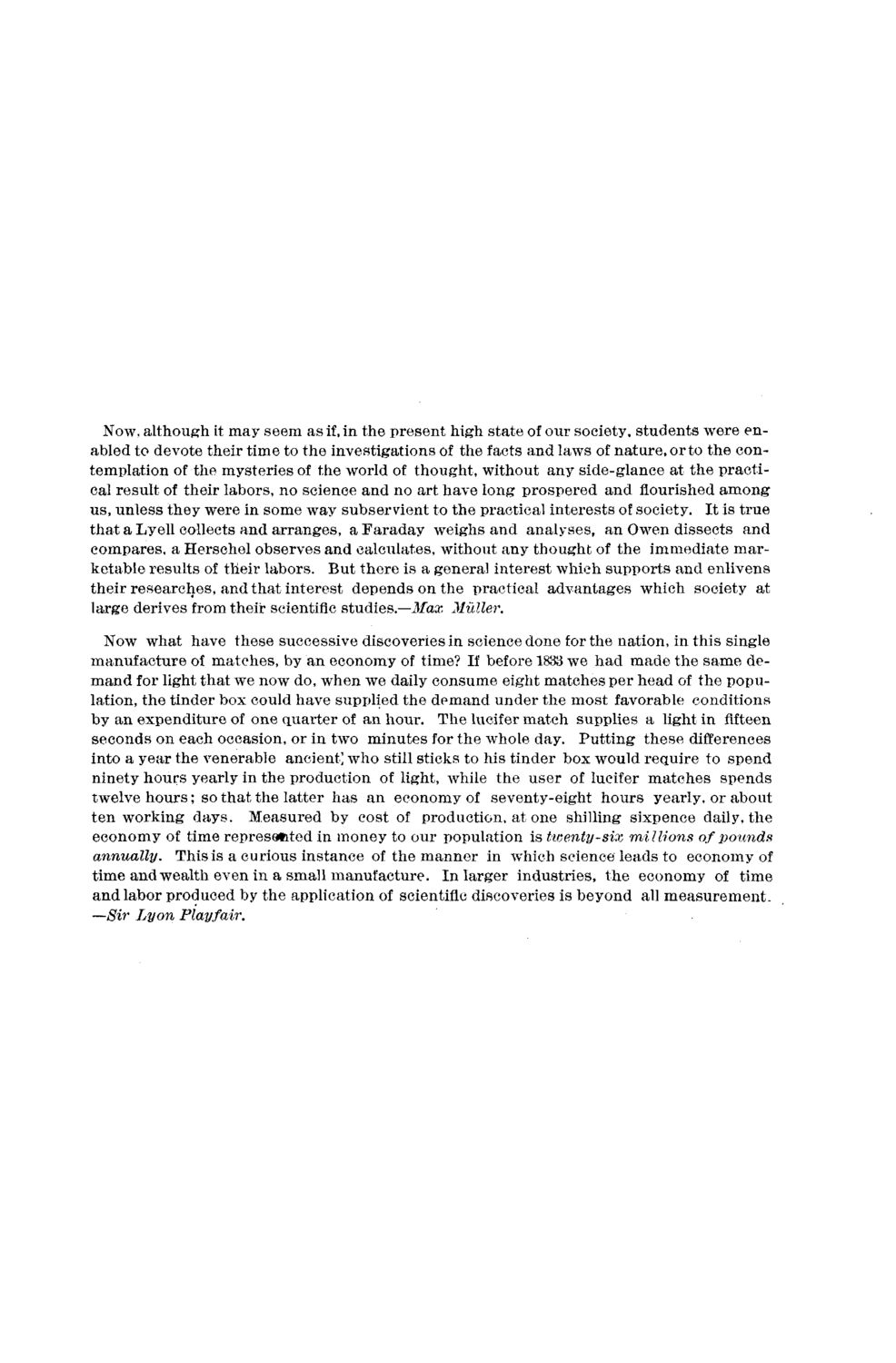| |
| |
Caption: Board of Trustees Minutes - 1886
This is a reduced-resolution page image for fast online browsing.

EXTRACTED TEXT FROM PAGE:
Now, although it may seem as if, in the present high state of our society, students were enabled to devote their time to the investigations of the facts and laws of nature, or to the contemplation of the mysteries of the world of thought, without any side-glance at the practical result of their labors, no science and no art have long prospered and flourished among us, unless they were in some way subservient to the practical interests of society. It is true that a Lyell collects and arranges, a Faraday weighs and analyses, an Owen dissects and compares, a Herschel observes and calculates, without any thought of the immediate marketable results of their labors. But there is a general interest which supports and enlivens their researches, and that interest depends on the practical advantages which society at large derives from their scientific studies.—Max Midler. Now what have these successive discoveries in science done for the nation, in this single manufacture of matches, by an economy of time? If before 1838 we had made the same demand for light that we now do, when we daily consume eight matches per head of the population, the tinder box could have supplied the demand under the most favorable conditions by an expenditure of one quarter 0f an hour. The lucifer match supplies a light in fifteen seconds on each occasion, or in two minutes for the whole day. Putting these differences into a year the venerable ancient] who still sticks to his tinder box would require to spend ninety hours yearly in the production of light, while the user of lucifer matches spends twelve hours; so that the latter has an economy of seventy-eight hours yearly, or about ten working days. Measured by cost of production, at one shilling sixpence daily, the economy of time represented in money to our population is twenty-six millions of pounds annually. This is a curious instance of the manner in wilich science leads to economy of time and wealth even in a small manufacture. In larger industries, the economy of time and labor produced by the application of scientific discoveries is beyond all measurement. Sir Lyon Play fair.
| |